- Home
- Douglas Niles
Circle at center sc-1
Circle at center sc-1 Read online
Circle at center
( Seven circles - 1 )
Douglas Niles
Douglas Niles
Circle at center
In the perfection of the warrior does the Seventh Circle achieve her ultimate ideal.
But perfection is honed to a double edge, for the shiny blade of humankind reflects the specter of apocalypse.
From the Tapestry of the Worldweaver, Chronicles of a Circle Called Earth
Prologue
Dawn swelled on the horizon beyond the volcano, and Natac was glad that he would see this place once before he died. The celestial unveiling was utterly serene, lavender merging into rose and pale turquoise, all advancing with a majesty that tightened his throat and brought tears to his eyes. The swath of soft blue expanded skyward from the conical mountain, and he dared to imagine that the eternally smoldering summit gave birth to this day. Scarcely breathing, he wondered at the perfection of the dark cloud that twisted upward from the massif to hang like a serpentine banner over the Valley of the Mexica.
It seemed fitting that his life would end here, today-that Natac, who had provided so much blood, so many lives, to the hungry gods, would at last offer his own heart on an occasion of high honor to the fearsome immortals who ruled over every aspect of the world. He would give his life on the altar of his enemies, the Aztecs-or Mexica, as they arrogantly styled themselves. Yet Natac was content to know that his heart would sustain the gods and allow life here and in his own homeland of Tlaxcala to continue to flourish.
On this day Tlaloc and Tonatiuh, voracious gods of rain and sun, would be feted with many hearts. Deities of wind and nightfall, of motherhood and spring, of maiz and catfish and herons, would gain strength from grand ritual. And of course, here in the city of the Mexica the Aztec god of war, Huitzilopochtli, would be offered the greatest number of hearts-Natac had been told that a river of blood would flow from his temple during the ritual.
For a moment he felt a small glimmer of regret, knowing that Tezcatlipoca, the Smoking Mirror, would receive little acknowledgment from the Mexicans, who were far more concerned with the needs of their insatiable war god. Silently, Natac extended a prayer into the cloudless dawn. He thanked Tezcatlipoca, who was also called the Enemy on Every Side, for his warrior’s life, and for the many enemies he had been allowed to take in battle. Every one of them had been sanctified to the glory of the gods, had died knowing that his lifeblood would sustain the world, and Natac had no doubt but that the immortals had been mightily pleased by these blood offerings. As he prayed, preparing for his journey to black Mictlan, the realm of death, he realized that never in his life had he seen a finer sunrise.
And he knew that there was no better way to die.
A guard, a respectful young stripling apprenticed to an Aztec Eagle Knight, stood uneasily several paces away. He was a big fellow bearing an obsidian-tipped spear, garbed in practical armor of padded quilting that protected him from groin to shoulders. Still, he had certainly heard of Natac’s reputation-doubtless he believed that the prisoner could have broken his neck at any moment.
But perhaps he perceived another truth as well: The Tlaxcalan Natac had no thoughts of escape. Since the moment he had been fairly captured in war, he had known that his life was ended. He was satisfied to be playing his final part in tasks laid out by godly scheme.
By the time the eastern sky was blue, people moved around the temples, pyramids, and other ritual sites that came into Natac’s view. Priests lit torches and beacon fires, while slaves swept the flagstone surface that would soon be the host of a great gathering. A servant approached with a copper plate, offering maiz and beans to the honored captive. Natac, his eyes still fixed to the brightening eastern sky, made no acknowledgment of the offer-he had purged his body over the previous days, and would leave no unseemly waste on the sacrificial altar.
Soon Mexicans by tens, and then by hundreds, began to filter through the constricting entries into the plaza. Some were richly dressed nobles trailed by courtiers and slaves as they sought good vantages for the day’s rites. Others were families, fathers bearing little girls on their shoulders, boys playing warrior, darting about with make-believe bows, spears, and maquahuitls. Already the square grew crowded as people filled the broad swaths of space between palaces and pyramids.
Finally bright light flamed along the western ridge crest, a swath of brilliance creeping slowly downward, driving back the lingering shadows of night. The great pyramid, whitewashed stone steps flanked by bright, serpentine images painted red, blue, and green, gleamed with supernatural brightness. Atop the steep structure stood two altars, sacred sites dedicated to the rain god, Tlaloc, and martial Huitzilopochtli. Viewing the lofty temples, rising so far above the great city of the Mexica, Natac couldn’t help but feel awe.
Closer by he saw the flat simplicity of the Warstone, a circular platform only a few paces in diameter. Four stairways, perfectly oriented to the earthly directions, led to the top of the ceremonial stage, which was just over a tall man’s height above the ground. On that stone surface, later this morning, Natac would die.
Like countless others today, his blood and heart would be given to sustain the fierce and immortal gods. But of all those who would perish, only Natac was being granted the high honor of sacrifice by combat. As any priest could affirm, this ritual killing of a well-known and esteemed war leader of Tlaxcala would be highly pleasing to the god of war.
By the time the line of sunlight had marched well down the western ridges, the great plaza of the Aztecs teemed with people. Intrigued by his first peaceful encounter with his lifelong enemies, Natac unabashedly looked around. He easily identified the nobles, each trailed by a slave who bore aloft an ornately decorative banner proclaiming his master’s exalted status. The feathery pennants floated like kites over the crowd, in colors of yellow and sapphire, crimson and violet, brighter than any hues Natac had ever seen.
In fact, everything was more colorful, here-from the plumage of heraldry and headdress to the splendid mantles worn by so many, and the twisting mosaics of bright paint that framed the ceremonial centers and palaces in this vast square. For the first time Natac’s warrior’s mind perceived how the Aztecs, by controlling all the realms around intransigent Tlaxcala, had strangled his homeland, blocking trade for the brilliant plumage of the Maya country, or the pure, vivid dyes from the coast.
The young guard blinked in surprise, but made no objection when Natac walked toward the Warstone and, with measured paces, ascended to the raised platform. From here he could see over the heads of the gathered throng of Mexica commoners, and even above the feathered heraldry of the nobles. A hundred paces away the great skull rack, with its many thousands of fleshless, bony heads, was a shadow-encased trophy of Aztec might. Other structures rose above the people, too-every one of them grand and imperial, many with ornate facades or columned porticos, pristine whitewash accented by brightly colored paint.
He found himself facing the Smoking Mirror, the temple of Tezcatlipoca atop its own angular, terraced pyramid, of a size eclipsed only by the great pyramid itself. From this great edifice the jaguar image of the Enemy on Every Side looked from his temple over this corner of the world. Natac shivered, touched by an uncanny sense that he looked into that Smoking Mirror and saw his own death reflected in all of the men he had killed.
Turning his gaze to the purpled slopes, he admired the distant borders of the valley. Closer, the ridges surrounding the great island city and its lake were green with forests, verdant woodlands now brightening in spreading day. To the southeast, the warrior beheld the lofty magnificence of that great volcano. North, and still farther east of the conical summit lay Tlaxcala.
For a moment he let himself reme
mber his wife and sons. His devoted bride had, somehow and almost unnoticed by him, become an old woman, but he knew that her comfort would be assured by his estate. He was also confident that his boys, young men now, would prosper, and he was content that his people would be free of Aztec domination for a long time.
And they would know that he died well.
As to the gods, Natac suspected that they cared little whether the hearts were offered in Tlaxcala or here in the city of the Mexica. Regardless, they should continue to favor the peoples of the world with good fortune, plentiful sustenance, and benign climate.
His mind summoned another memory, the image of a pretty little girl. Her name was Yellow Hummingbird, and she had been the only sister in a house of rambunctious boys. She was his daughter, and she had been gone for many years now-she had been given to the rain god as a virginal twelve-year old. Now he wondered if he would see her in Mictlan. The thought gave him a pang of anticipation, a sense of hope for a mysterious future.
There was a ripple of excitement and murmuring as black-clad priests-hair, garments and skin matted with crusted blood and other filth-moved ostentatiously through the crowd. People shrank back, frightened by the fierce aspect and profound stench of these holy men, many of whom carried smoking braziers, while others trilled upon flutes or brayed loud prayers. Some made their way with deliberate haste up the steps of the great pyramid, and soon colored smoke billowed into view from before those lofty altars. Conch horns blared exultantly from all corners and heights of the plaza, while the music of the flutes swelled into a shrill cacophony.
Huitzilopochtli, naturally, would receive the first sacrificial victims in this place that was by its very existence a testament to the Aztec war god’s might. A file of men, dressed like Natac in plain, clean loincloths, began ascending the steep steps of the great pyramid. Those who would die today, the xochimilche, were mostly captives taken by the Aztecs in their battle with Tlaxcala. Additional victims were slaves, purchased and then given for sacrifice by a master who had reasons to seek the favor of this god or that.
Natac knew that the xochimilche leading the serpentine queue were Aztec warriors who had been crippled, maimed, blinded, or otherwise injured in the recent battle. Their days of combat ended, they offered themselves willingly to the ravenous god of war. The sight of their struggles moved Natac as he watched the first, a man whose left leg had been cruelly split by an obsidian-bladed maquahuitl. A priest climbed to his side, but the warrior brusquely waved away any suggestion of assistance. Instead he bore his weight on the good leg, using his hands to lift himself higher in a series of careful hops.
Finally the crippled Aztec stood at the top of the pyramid. Now more horns moaned, long and deep and quavering, as a ring of priests closed in. Though he couldn’t see inside the alcove of the temple, Natac knew that the fanged and bestial image of Huitzilopochtli, maw gaping hungrily, crouched beside the flat altar where the xochimilche would be stretched backward.
With startling brilliance, the rays of the rising sun struck the roof of the temple, and a patina of gold shimmered downward, creeping toward the sanctified altar. Suddenly the priests stepped back and the crowd buzzed with excitement as a blaze of viridescent color flashed amid the dark clerics. The brilliant plumage cloaked a man, a regal figure in a rich mantle of aquamarine hummingbird feathers, head crowned by the emerald-green tail feathers of the quetzal bird. With sudden recognition and awe, Natac knew this was Moctezuma himself, the Eloquent One-ruler of the Aztec empire.
The noble figure raised a hand and sunlight flickered momentarily off a blade of sharpened, fire-orange jade. The knife dropped, and in another moment Moctezuma’s other hand came up. At the same time the advancing sunlight engulfed the company before the temple, dazzlingly bright and magical. In the clutching fingers, tiny with distance but crimson and bright as a ruby, a human heart pulsed in the first rays of the sun.
The golden sheen continued down the face of the pyramid as, one by one, more xochimilche advanced into the temple. Moctezuma himself performed several more sacrifices, then stepped back to allow the priests to assume the ritual butchery. Natac knew that each heart was placed into the maw of the god of war, no doubt reverently at first, although inevitably the grotesque jaws would soon overflow. Additional hearts would ultimately fall in a heap upon the floor while the gory work cast a layer of blood over the priests, the temple, and the entire top of the pyramid.
While the original file of xochimilche still marched forward, a second column now ascended the pyramid steps. This group was led by priests to the altar of Tlaloc, the other temple commanding a site on the city’s most sacrosanct vantage. The neighboring altar, too, was soon drenched in blood as heart after heart was ripped forth, here in the name of the goggle-eyed deity of rain.
For a moment, Natac’s eyes wandered to the farther pyramid, where the altar of Tezcatlipoca was currently unattended. His enemies would extend this ancient god a token feast of hearts, he was certain, but not in sufficiency deserved by the patron deity of Tlaxcala. He reminded himself that in his homeland many Aztec hearts would fill the jaguar-maw of the Enemy on Every Side, but he remained aggrieved by the sight of this Mexican temple’s neglect.
Before the war god’s temple on the great pyramid, the drained corpses were hauled away by burly priests and unceremoniously tumbled down the side of the blocky structure. A streak of bright red appeared at the lip of the sacred platform, quickly centering in the gutter beside the wide stairway. Oozing thickly, blood began to trickle down the chute, drawing a murmured reaction from the gathered throng. Natac watched the precious liquid intently, knowing that its appearance signaled the commencement of his own part in the festivities.
Several priests approached, magically parting the crowd that had closed around the Warstone, and Natac was pleased to see a familiar figure beside them. The Eagle Knight Takanatl was resplendent in his ceremonial costume, wooden helmet forming the beak of a great hunting bird-which was in turn an opening that framed the warrior’s stern face. Takanatl’s arms and calves were bare, but a rich mantle of white cotton and green parrot feathers framed the black and white of his eagle plumage and distinguished him as a man of great status. Now he came to stand at the base of the Warstone, gray eyes meeting those of the man he had captured.
“Greetings, Natac,” said the Aztec, in the Nahuatl tongue that was a common link between their intractable nations. “I am pleased to anticipate your final battle.”
“It is my honor to die before you-and to offer my heart to the gods,” Natac replied. He felt a strong rush of affection for the proud Eagle Knight, his foe in countless battles over the last thirty years, and a momentary regret that he could not have the honor of slaying this man today, then journeying with him to Mictlan.
“Does your hand cause you pain?” asked Takanatl.
For a moment Natac was surprised. Then he looked down at the swollen purpled lump at the terminus of his left arm, remembered the rockslide ambush, crushing boulders trapping him, leading to his capture. The infection had become severe, swelling through his wrist and into his forearm.
“No-I have given it no thought,” he replied truthfully.
“I am glad.” Takanatl smiled broadly, relishing his memories. “It was my good fortune that you were coming through the pass as my men released the rockslide. The Eloquent One himself took notice!”
“Ah, but the pursuit that led me into that pass was a fine thing!” Natac declared. “To see tens of thousands of Aztecs fleeing the battle, leaving hundreds behind as offerings for Tlaxcalan temples. It was a victory worth dying for.”
“Indeed.” The Eagle Knight’s expression became rueful. “Moctezuma was less than happy with the other details of the battle.” Takanatl’s eyes flickered to the great pyramid, and Natac was reminded that not all xochimilche went willingly to the realm of death.
Only then did the Tlaxcalan note a file of other warriors behind Takanatl, less grandly dressed than the Eagle Knight, but capa
ble and sturdy-looking men nonetheless. There were a dozen or more, waiting impatiently for the ceremonies to be concluded, encircling the platform and congregating at the bases of the four stairways leading to the Warstone. Natac wondered which of them would kill him-and he hoped, for the honor of the Smoking Mirror and Tlaxcala, that it would not be the first man to try.
The closest, a hard-eyed young man of great size and scowling features, stared at Natac unblinkingly. He bore a sharp-edged maquahuitl and wore padded quilting to protect his chest, belly, and shoulders. Obviously this young warrior would commence the battle with the Tlaxcalan xochimilche, and as Natac admired the man’s sinewy limbs and the deadly weapon in his hand, he admitted to himself that the Aztec had a good chance of winning.
Four priests climbed the stairways to the top of the Warstone. Three prayed loudly, wafting incense while the fourth offered Natac his ritual weapons: a slender pole of wood, which was merely a spear without the customary head of sharp stone; and a parody of a lethal maquahuitl. Instead of the razor-edged shards of obsidian characteristic of the bladed club, the edges of this weapon were marked only by colorful tufts of feathers.
Once again Natac was reminded of his useless left hand, knowing that the injury rendered the pole an ineffective tool.
“I choose only the ritual sword,” he said, taking the blunt maquahuitl from the priest’s outstretched hand. Natac watched impassively as the smelly, filth-encrusted cleric hastily withdrew, apparently fearful even of this ludicrously armed enemy.
The four holy men raised their voices in long, ululating cries, a summons intended to draw the attention of the god of war. The file of sacrificial victims on the great pyramid came to a temporary halt as the eyes of seemingly all the populace turned to the ceremony on the Warstone. Natac was awed by a fresh appreciation of the crowd’s size, which must have numbered a hundred times a thousand and more.

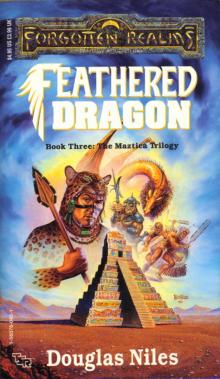 Feathered Dragon mt-3
Feathered Dragon mt-3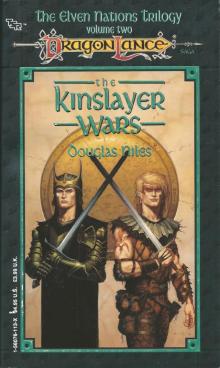 The Kinslayer Wars
The Kinslayer Wars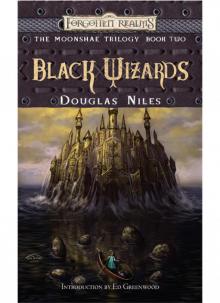 Black Wizards
Black Wizards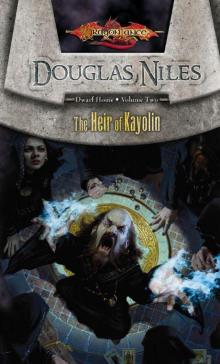 The Heir of Kayolin dh-2
The Heir of Kayolin dh-2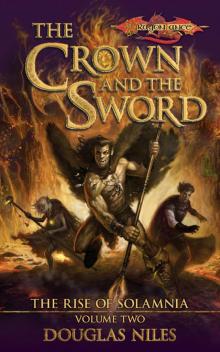 The Crown and the Sword tros-2
The Crown and the Sword tros-2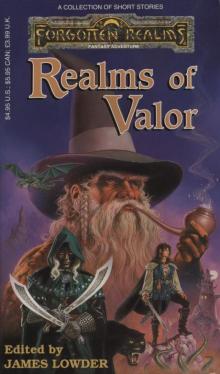 Realms of Valor a-1
Realms of Valor a-1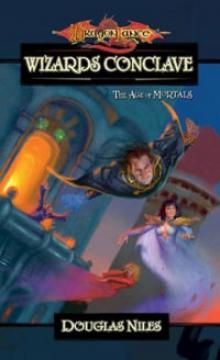 Wizards Conclave aom-5
Wizards Conclave aom-5 Fox On The Rhine
Fox On The Rhine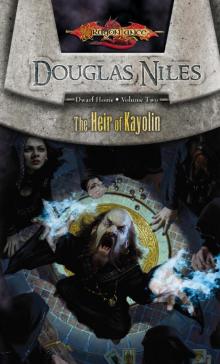 The Heir of Kayolin
The Heir of Kayolin Fox at the Front (Fox on the Rhine)
Fox at the Front (Fox on the Rhine)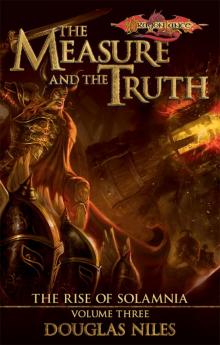 Measure and the Truth tros-3
Measure and the Truth tros-3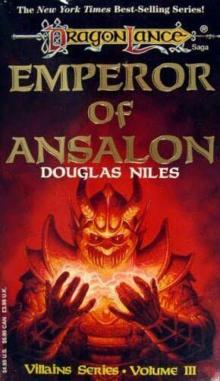 Emperor of Ansalon (d-3)
Emperor of Ansalon (d-3)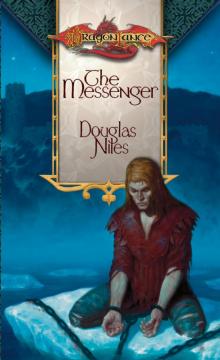 The Messenger it-1
The Messenger it-1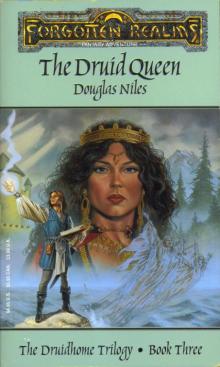 The Druid Queen tdt-3
The Druid Queen tdt-3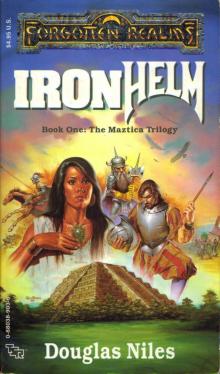 Ironhelm mt-1
Ironhelm mt-1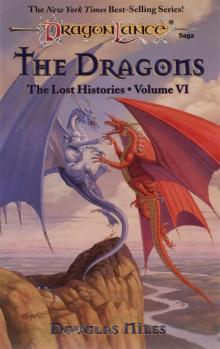 The Dragons lh-6
The Dragons lh-6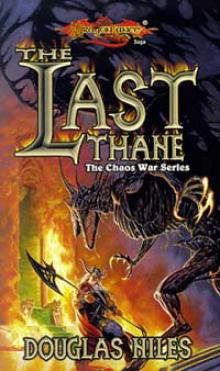 The Last Thane cw-1
The Last Thane cw-1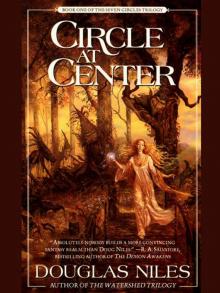 Circle at center sc-1
Circle at center sc-1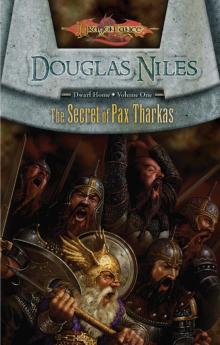 Secret of Pax Tharkas dh-1
Secret of Pax Tharkas dh-1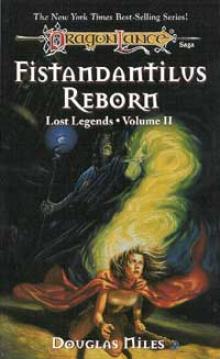 Fistanadantilus Reborn ll-2
Fistanadantilus Reborn ll-2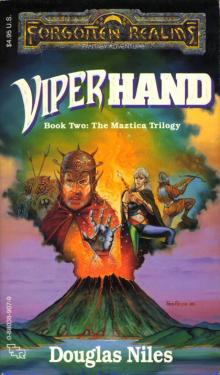 Viperhand mt-2
Viperhand mt-2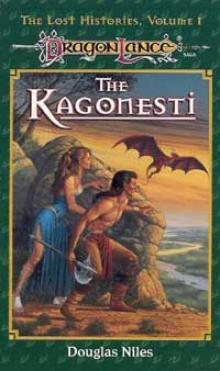 Kagonesti lh-1
Kagonesti lh-1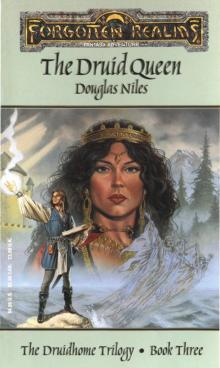 The Druid Queen
The Druid Queen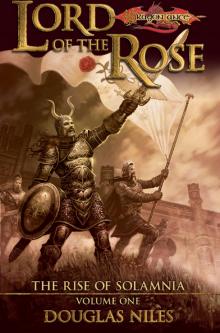 Lord of the Rose tros-1
Lord of the Rose tros-1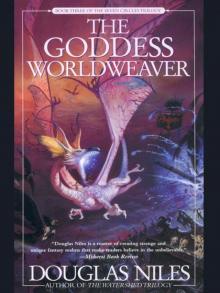 Goddess Worldweaver sc-3
Goddess Worldweaver sc-3 Eyeball to Eyeball (Final Failure)
Eyeball to Eyeball (Final Failure)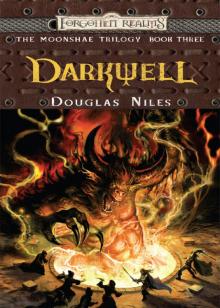 Darkwell
Darkwell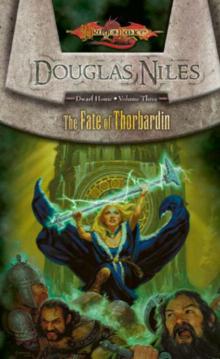 Fate of Thorbardin dh-3
Fate of Thorbardin dh-3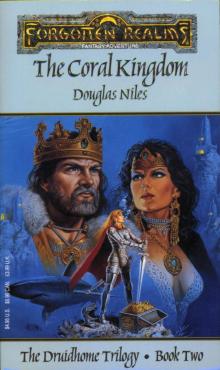 The Coral Kingdom tdt-2
The Coral Kingdom tdt-2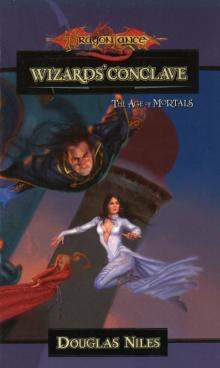 Wizard's Conclave
Wizard's Conclave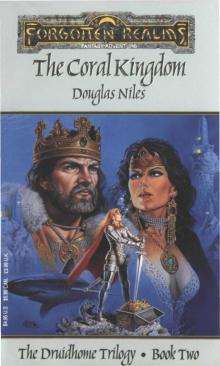 The Coral Kingdom
The Coral Kingdom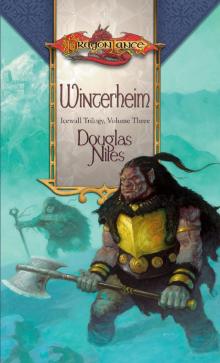 Winterheim it-3
Winterheim it-3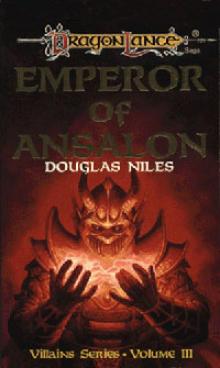 Emperor of Ansalon v-3
Emperor of Ansalon v-3 MacArthur's War: A Novel of the Invasion of Japan
MacArthur's War: A Novel of the Invasion of Japan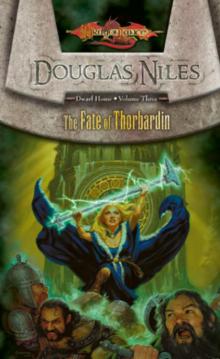 The Fate of Thorbardin
The Fate of Thorbardin The Rod of Seven Parts
The Rod of Seven Parts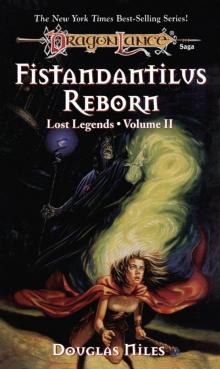 Fistandantilus Reborn
Fistandantilus Reborn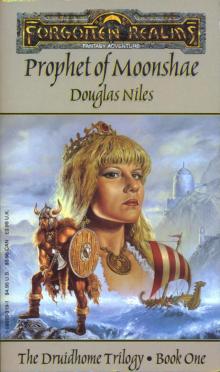 Prophet of Moonshae tdt-1
Prophet of Moonshae tdt-1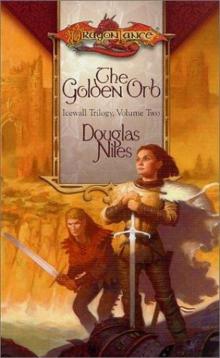 The Golden Orb i-2
The Golden Orb i-2